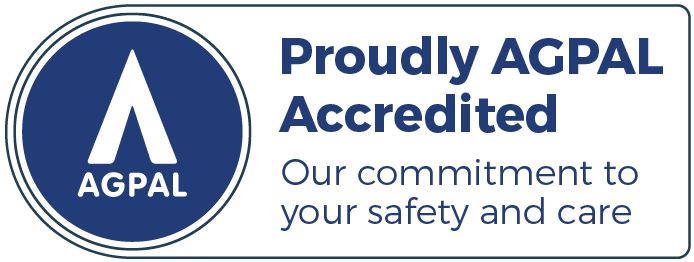Dedicated Exercise Physiologist Mullumbimby
What is an Exercise Physiologist?
Accredited Exercise Physiologists (AEPs) are highly trained allied health professionals who focus on the use of exercise to prevent and manage a variety of chronic and complex medical conditions. AEPs work across a range of settings, including hospitals, health services, community health centres and private practices, providing essential services that support patients in improving their health and quality of life. They develop tailored exercise programs for individuals at risk of, or living with, chronic conditions such as diabetes, cardiovascular disease and obesity, as well as for those recovering from musculoskeletal injuries. AEPs also play a crucial role in rehabilitation, helping patients regain strength, mobility and function after injury or surgery. By working closely with other healthcare professionals, AEPs ensure that exercise is safely and effectively integrated into a patient’s overall treatment plan.
To
book an appointment with an exercise physiologist in Mullumbimby, call Mullumbimby Comprehensive Health Centre on
(02) 6684 1511. We can also assist with
skin health,
women's health,
men's health,
family medicine,
chronic disease management,
travel vaccinations,
QML pathology,
osteopathy,
naturopathy and nutrition,
podiatry,
physiotherapy,
psychology,
mental health services and
preventative health.
More About Exercise Physiologists
Accredited Exercise Physiologists (AEPs) undergo rigorous training, completing a four-year degree that focuses on the clinical application of exercise for managing and preventing chronic and complex medical conditions. Their training includes:
- Human Physiology: In-depth study of how the body functions and responds to exercise.
- Exercise Science: Understanding the principles of exercise and its effects on the body.
- Chronic Disease Management: Knowledge in using exercise to manage conditions like heart disease, diabetes and obesity.
- Musculoskeletal Injury Rehabilitation: Techniques for aiding recovery and restoring function after injuries.
- Exercise Prescription: Skills in creating tailored exercise programs based on individual health needs.
- Patient Education: Teaching patients about the benefits of physical activity and how to incorporate it into their daily lives.
This comprehensive training equips AEPs to assess, prescribe and monitor exercise programs that are tailored to each patient’s needs. By applying evidence-based practices, AEPs empower patients to take an active role in their healthcare, promoting long-term adherence to healthy lifestyle changes and improving overall health outcomes.
Frequently Asked Questions
-
What is the difference between an exercise physiologist and a personal trainer?
Lots! Aside from the level of training, exercise physiologists aim to achieve lifestyle and behavioral change.
Exercise physiologists (EP’s) are, by far, the most qualified health professionals to provide exercise for people with conditions such as diabetes and pre-diabetes, high blood pressure, cardiovascular disease, depression, COPD, arthritis and those with a history of poor exercise maintenance.
-
What is the difference between an exercise physiologist and a physiotherapist?
Lots! EP’s work with injury prevention and chronic disease management as well as lifestyle and behaviour modification. EP’s work with all types of people including those wanting to improve health and wellbeing and those with chronic illness. EP’s will work with you to set goals and maintain your motivation, two aspects that will see you succeed at achieving your goals.
-
Do I need a referral?
No. Referrals are certainly welcome, but are not necessary if claiming through your health fund.
A referral from your doctor is required when using Medicare (EPC) funding or for insurance claims (Workcover/CTP). Eligibility requirements will need to be discussed with your doctor.
-
What happens during the appointment?
Your first appointment will involve a thorough case history and will require you to perform several activities to assess your current physical capabilities. From your assessment, appropriate goals will be set and a personalised program will be developed.
Following consultations will involve performing the exercises in your program with a focus on the strength and fitness goals developed after your assessment. Close supervision will ensure correct technique and allow for modifications and exercise progression.
-
How long is an exercise physiology session?
Exercise physiology private initial session can range from 45 mins – 60 mins.
Follow-up private sessions range from 30 mins – 45 mins.
Group sessions are 60 mins.
-
What do I wear?
Please wear comfortable clothing you can walk and move freely in and walking shoes or runners. Please also bring a water bottle and a towel to every appointment.
-
What else do I need to bring?
Please bring any paperwork provided by your doctor, any reports and results from imaging (ultrasound/x-ray/CT/MRI) or from other tests (blood results).
-
Do you accept Workcover and insurance referrals?
Workcover NSW referrals are accepted. Some additional information will be required before the initial consultation.
-
What is a CDM/EPC referral?
The Chronic Disease Management (CDM) Program entitles eligible people up to 5 subsidised sessions through Medicare. If appropriate, this can be arranged through your GP. Referred participants will receive a rebate of $50.95* for each of the 5 sessions. Full payment is required at the time of consultation and you will be provided with a receipt to claim through Medicare.
This was formerly known as the Enhance Primary Care (EPC) program.
-
Can I use my health fund and get the EPC rebate for the same consultation?
You cannot use your health fund and EPC for the same consultation. Often people will use the rebate from the health fund for the initial consultation as they get a greater amount back, then use the EPC funding for the following appointments. Please check with your health fund before your first appointment as it can vary.
-
What are your payment methods?
Immediate health fund rebates through HICAPS are available. Please contact your fund if you wish to know the exact rebate amount, as this varies depending on your fund and your level of cover. We accept cash, EFTPOS, VISA and MasterCard. Payment is required at the time of consultation and no accounts will be issued.
Site links
resources
MEDICAL Services
ALLIED HEALTH
Trading Hours
- Monday
- -
- Tuesday
- -
- Wednesday
- -
- Thursday
- -
- Friday
- -
- Saturday
- -
- Sunday
- Closed
Contacts
ABN: 94 534 997 304
AGPAL Accredited Practice







